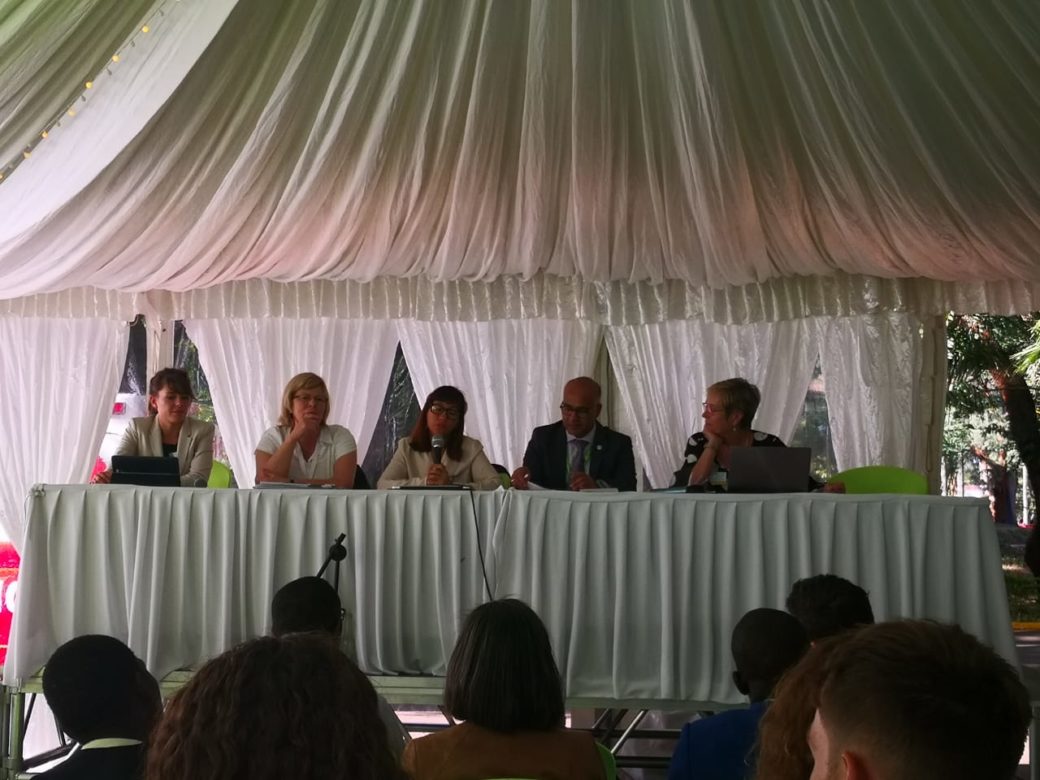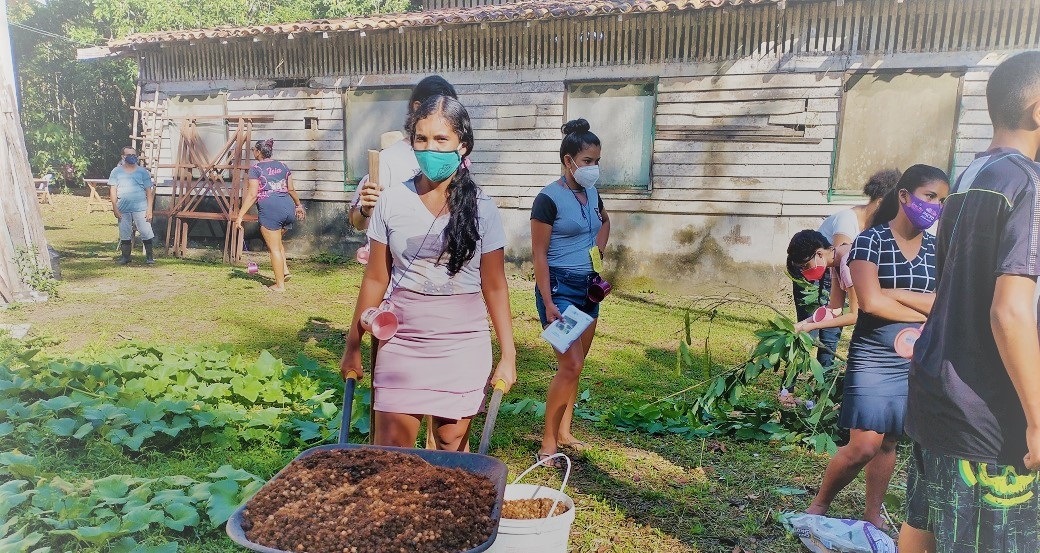Feministas en UNEA4 continúan con el llamado por el derecho a un medio ambiente sano y sostenible

En la 4ª Reunión de la Asamblea de las Naciones Unidas para el Medio Ambiente en Nairobi, Kenia, los estados miembros aprobaron una resolución histórica para promover la igualdad de género y los derechos humanos así el empoderamiento de mujeres y niñas en gobernanza ambiental.
Continuar leyendo en ingles…
Reflecting on the outcomes of UNEA4, the Women’s Major Group offered the following statement: Feminists at UNEA4 Continue the Call for the Right to a Healthy and Sustainable Environment
The conclusion of the 4th Meeting of the United Nations Environment Assembly in Nairobi, Kenya saw a landmark resolution to promote gender equality, and the human rights and empowerment of women and girls in environmental governance. Unfortunately in the resolutions concerning deforestation, geoengineering, and plastic pollution, issues that negatively and disproportionately affect local and women communities, member states kept business as usual with weak or no commitments at all.
The Women’s Major Group“We welcomes the commitment to strengthen the gender dimension of environmental policy and the resolution’s recognition of importance of protecting human rights, including women rights. We are particularly pleased that the resolution specifically invites member states to establish gender criteria for national environmental projects and programs, to recognize gender equality and the role of women and girls in sustainability change agents, and to support capacity-building to enhance women’s active and meaningful participation in decision-making.
“We welcome the mobilization of data requested of the UNEA Executive Director, but caution that this work must include the access to information and participation by civil society and the Wwomen’s Mmajor Ggroup, which is not currently stipulated in the text. As countries report back on their progress at the next UNEA meeting in 2021, we expect to see meaningful progress and accountabilitybe accountable for their commitments made today.
“We regret that the member states could not agree on the importance of protecting women environmental human rights and environmental defenders, despite this having been articulated throughout the negotiations. This formal recognition is long overdue. States must seize every opportunity, in UNEANairobi and in other UN fora like the HRC, UNFCCC COP and the HLPF,ums as a matter of urgency to protect environmental human rights defenders
– including those who are women and indigenous peoplesface an extra layer of threats – and the right to a healthy environment. The persistent absence of this recognition undermines the vision and commitments otherwise agreed upon by member states, and UNEP’s 2018 Environmental Defender policy. We listened with extreme concern to the United States, in its closing remarks, as it refused to acknowledge any reference to the Convention on the Elimination of All Forms of Discrimination against Women (CEDAW) in the adopted resolution.
The CEDAW is one of the oldest conventions of the United Nations and has been ratified by all UN Member States, except the USA, which is a stain on the country.
“Regretfully, as we celebrate the first gender resolution, we are dismayed at other resolutions that would have called attention to harmful practices that affect women’s health, livelihoods and planet. Tthe potential of having in place a very first resolution referring to the role that agricultural supply chains have on deforestation, was missed. The EU, original proponent of the Resolution, saw how the US and Brazil undermined the spirit of this effort throughout up to the point that it was withdrawn. We nonetheless strongly appreciate the draft resolution put forward by the EU on deforestation and agricultural supply chains. It was about time to acknowledge that agricultural expansion is currently responsible for around 80% of deforestation, of which 1/3 is internationally traded. Having had a strong resolution on that topic would have demonstrated political will and leadership in halting deforestation by 2020 – a target which has been agreed upon both under the Agenda 2030 and Aichi Target 5. We are thus deeply disappointed by the lack of ambition and obstruction in the negotiations on this issue, and the resolution’s
ultimate withdrawal. If we don’t commit and take actions to halt deforestation and forest degradation today, we will not be able to ensure food security because healthy ecosystems are the basis for sustainable agriculture.”
We are dismayed that due to strong resistance from a few high-emitting fossil producing countries, like the US, Saudi Arabia and Brazil, UNEA-4 also lost a vital opportunity to reinforce precautionary global governance of geoengineering at the UN, building on existing moratoria in the CBD and London Convention/Protocol.
A resolution on marine plastic litter proposed by Norway, Japan, and Sri Lanka, tried to strengthen international governance on this issue and include the consideration of a possible new legally binding agreement. However, strong opposition led by the US delayed progress at the scale and urgency that the plastic pollution crisis requires. Similarly, a resolution on single-use plastics proposed by India was weakened. We join vocal proponents – like the Pacific Islands States, Philippines, and Malaysia – in urging countries to take meaningful action to address plastic pollution between now and UNEA-5.
Women and people from all over the world continue to suffer from the impacts of failed policies and lack of action in effectively tackling: Climate change, air, soil, and water pollution, and unsustainable consumption and production. At UNEA-4, we saw a continuation of business is usual. As feminists we continue to disrupt and interject our analysis for women and the planet.
We will continue to call for the Right to a Healthy and Sustainable Environment.










